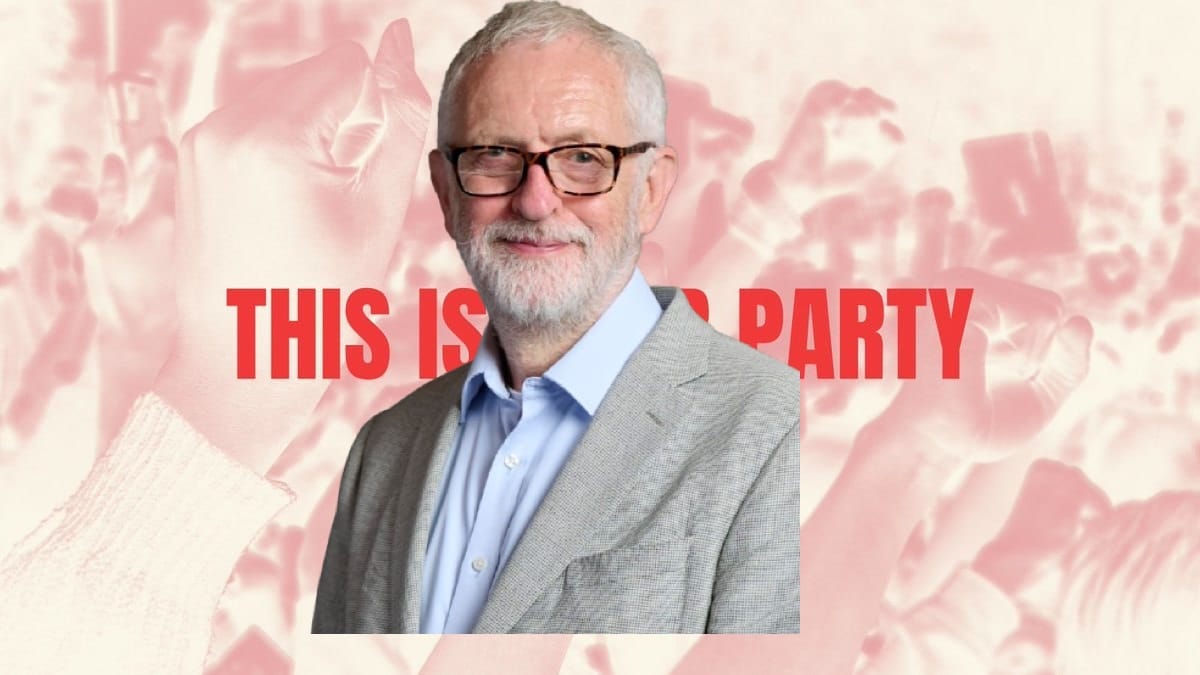Overview of Jeremy Corbyn's New Party: Wealth Redistribution?
Jeremy Corbyn’s new left-wing party pushes socialist agenda: public ownership, wealth redistribution, worker protections, tackling inequality, cost-of-living, and austerity.

Jeremy Corbyn, the former Labour leader, has recently announced the formation of a new left-wing political party in the UK, often referred to in media and discussions as a "new socialist party" or "new left-wing party." This initiative, launched in July 2025 alongside independent MP Zarah Sultana and others, aims to challenge the current Labour government under Keir Starmer from the left. The party is positioned as a grassroots, democratic alternative focused on empowering working-class people, addressing economic inequalities, and prioritizing welfare over warfare. While the party's name is still under discussion (suggestions include something "tricky" to finalize, per reports), it has attracted significant attention, with claims of over 600,000 registered supporters shortly after launch.
The party's economic and business policies draw heavily from Corbyn's longstanding socialist principles, echoing his 2019 Labour manifesto but adapted to current crises like the cost-of-living issues, Gaza conflict, and dissatisfaction with Starmer's policies. Based on statements from Corbyn, interviews, and discussions on X (formerly Twitter), the likely policies emphasize public ownership, wealth redistribution, strong worker protections, and investment in public services. Critics argue these could pressure markets and big corporations, while supporters see them as a necessary "economic reset" to reduce poverty and inequalities.Key Economic PoliciesThe new party's economic agenda appears centered on transformative socialism, aiming to reverse decades of privatization and austerity. Core elements include:
Green New Deal and Environmental Focus: A "green revolution" with investments in renewables, creating 1 million jobs, and aiming for net-zero emissions by the 2030s. This includes public ownership of energy and faster decarbonization, contrasting with Labour's perceived subsidies for pollution (e.g., fuel duty freezes).
Your party and public welfare
Investment in Public Services and Welfare: Significant funding increases for the NHS (e.g., annual rises, ending privatization, free dental and prescriptions), education (free tuition, maintenance grants, universal free school meals), and housing (building over 1 million affordable homes, rent controls, ending rough sleeping and homelessness). Other priorities include a well-funded social care system, lifelong learning/training, and integrated public transport. The party positions this as an "economic reset" investing in welfare rather than warfare or corporate bailouts.
Wealth Redistribution and Taxation: Emphasis on "mass redistribution of wealth" through higher taxes on the wealthiest individuals and corporations to fund public services. This would ensure "everyone can live in dignity," with policies like boosting welfare spending, ending food banks, and increasing carer allowances. The party critiques Starmer's Labour for repackaging Tory ideas, such as deregulation and corporate subsidies, without addressing poverty or inequalities.
Public Ownership and Nationalization: A strong push for bringing key utilities and infrastructure into public hands to end profiteering and improve services. This includes water, energy, rail, and possibly mail (Royal Mail). Corbyn has highlighted the failures of privatization since the Thatcher era, arguing it has led to disastrous results like higher bills and poor service. Utilities would be renationalized to prioritize public good over shareholder profits.
Key Business PoliciesThe party's approach to business is likely pro-worker and anti-corporate exploitation, focusing on curbing big business power while potentially supporting small enterprises indirectly through economic stability. However, the emphasis is on regulation and protections rather than incentives for private sector growth:
Support for Small Businesses and Innovation: While not explicitly detailed, the agenda implies indirect benefits through lower energy costs via public ownership, subsidized bills for production, and a focus on creating jobs via public investment (e.g., national wealth fund, green economy). However, higher corporation taxes and regulations might challenge larger firms. Some X discussions note the need for public investment banks to channel finance into projects off the Treasury balance sheet.
Opposition to Deregulation and Corporate Privileges: Firm stance against freeports, special economic zones (SEZs), and "capitalist paradises" for corporations, which Corbyn describes as exempting businesses from taxes, labor laws, and regulations. This could mean higher scrutiny on big UK corporates, utilities, and defense firms, potentially leading to market pressures if implemented.
Worker Rights and Labor Protections
Stronger unions, a higher minimum wage (e.g., £10/hour for ages 16+), banning zero-hours contracts, and aiming for a 32-hour workweek. Enhanced rights for tenants and workers, including tighter protections against exploitation.
Discussions on XOn X, reactions are polarized. Supporters praise the policies as a bold alternative to Starmer's "dismal" first year, with 47% of Britons (69% of 16-34-year-olds) believing they could bring positive change, per IPSOS polls shared on the platform. Posts highlight enthusiasm for public ownership and wealth taxes, often linking to articles like those in Jacobin or The Guardian.
6 sources Critics, including figures like Paul Mason, warn it could split the left vote, benefit Tories or Reform UK, and undermine NATO/Ukraine support.
4 sources Some users question the focus on Gaza over UK domestic issues, while others call for modern monetary theory (MMT) integration or advisory groups of "elected elders" like Diane Abbott.
5 sourcesThese policies represent a shift toward Scandinavian-style social democracy or "hardline communism" in extreme views, but they're framed as pragmatic responses to UK crises. The party is still in early stages, so details may evolve—check official announcements for updates.


